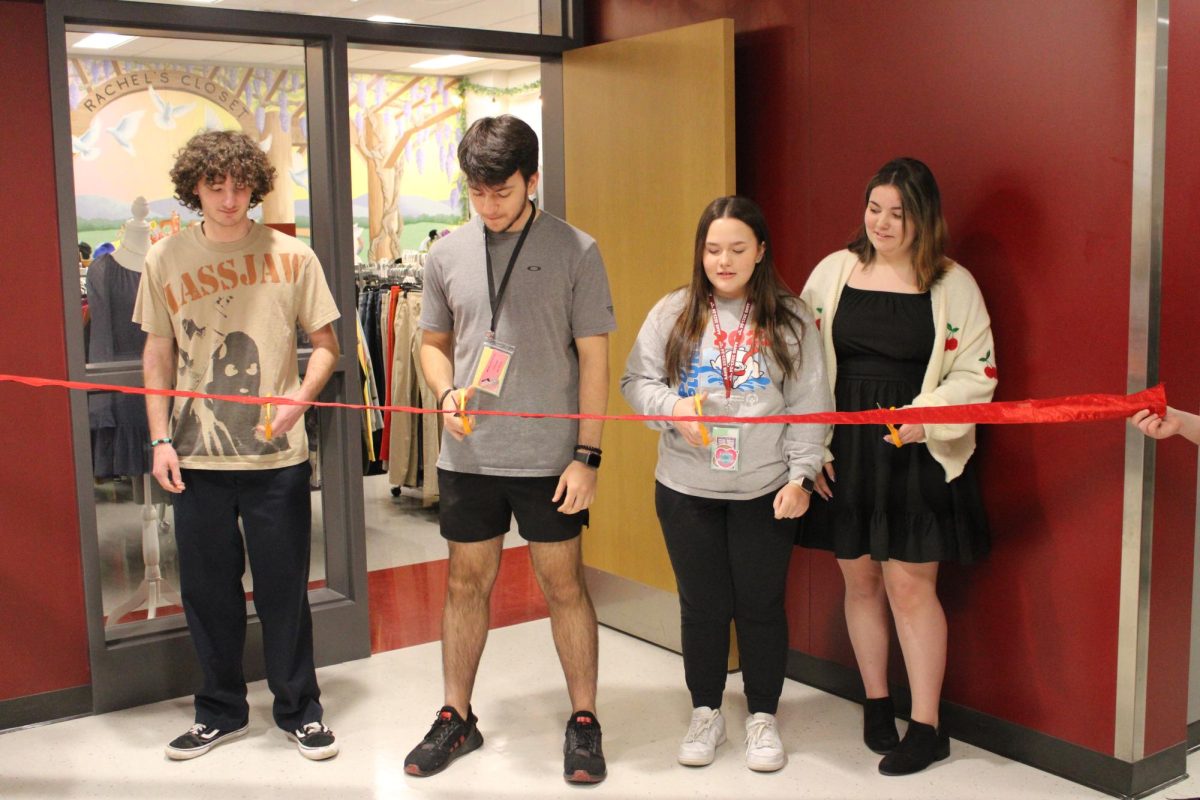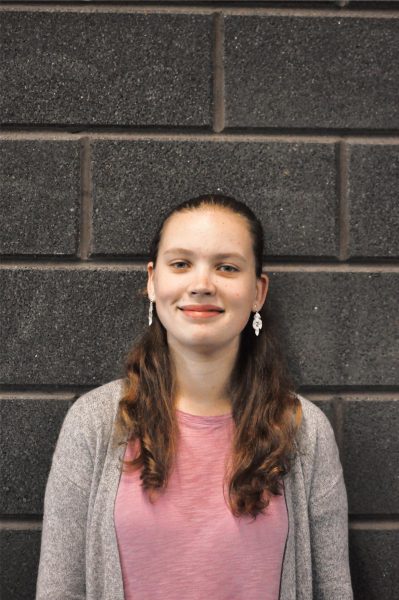Engineering. Programming. Microbiology. Physics. Science is a key subject in regular school curricula—but some students take these subjects beyond their classes. Seniors Jacob Ceglar, Connor Matosziuk, Laney Yost and junior Andrea Slusser comprise the leadership team of the club that allows students to do just that: Pennsylvania Junior Academy of Sciences.
“Quiet people have the loudest minds.”
—Stephen Hawking, physicist
PJAS is an academic club that allows students to do their own research, complete experiments, and present their findings to a panel of judges at a regional competition in February.
As club president, Ceglar first became involved because a teacher thought the club would be a good fit for him.
“Mrs. Partsch told me about the club and recommended that I check it out, and I did and I decided I would do an experiment and see how it went,” Ceglar said. “I did it in tenth and eleventh grade.”
Matosziuk, club vice president, heard of the club through a friend’s recommendation.
“First, in freshman year I started talking to Jacob [Ceglar], who [then joined] PJAS. Then, by junior year between him and Mr. Borst pressuring people to at least check it out, I finally decided to do it,” Matosziuk said.
Slusser, club secretary, first found out about the club in her biology class.
“My freshman year they had posters up in our biology classrooms. And I remember looking at it and thinking, ‘You know, my father’s always told me to be in STEAM. It’s a very good field.’ So I was like, ‘We’ll try it.’ I’ve always liked science, and I’m thinking of majoring in dairy science. Science has always been my favorite,” Slusser said. “I met Mr. Borst and a lot of other really fun kids that have graduated now. They were all very welcoming. So I enjoyed the time that I spent with them and I’ve continued it ever since.”
Yost, as club treasurer, has had a similar experience.
“I was always interested in STEAM subjects, and I wanted to take a closer look at some of the sciences and do my own research,” Yost said.
“Most people say that it is the intellect which makes a great scientist. They are wrong: it is character.”
—Albert Einstein, theoretical physicist
PJAS club membership allows students to participate in science-related activities, such as viewing a nuclear reactor on the Penn State main campus. The competition portion is optional.
There are two major parts of the club. There’s a main, larger club, where you’ll get to go on trips to colleges and get to view their science facilities or listen to presentations about different science fields. There’s also the competition aspect, which is the smaller club where you come up with a project of your own and research it before presenting in front of a board of teachers. — Connor Matosziuk
“We meet every once in a while, and we talk about some field trip opportunities,” Ceglar said. “If you’re doing a project, if you’re competing, things get rolling around December/January time, and that’s where you start picking a mentor, you have an idea and you set up your experiment and you perform said experiment.”
Through club activities, students can forge connections with other students and teachers throughout Pennsylvania, furthering their academic views.
“There are two major parts of the club. There’s a main, larger club, where you’ll get to go on trips to, for example, colleges and get to do things like view their science facilities and listen to presentations about different science fields,” Matosziuk said. “There’s also the competition aspect, which is the smaller club where you come up with a project of your own and research it before presenting in front of a board of teachers.”
“The important thing in science is not so much to obtain new facts as to discover new ways of thinking about them.”
—Sir William Bragg, physicist
Matosziuk completed his project on the tension of a string and the frequency of its resonation in the previous year, obtaining a first-place award at the state level. This year, he wants to stay in the same area of sound physics.
“I was thinking of maybe doing something with how different materials affect the volume of sound,” Matosziuk said.
Ceglar competed in his tenth and eleventh grade years, both centering around microbiology. Both times, he received a second-place award at the state competition.
“My tenth grade project was on the acidity of certain drinks and then I took the analytical data and I compared that to the capacity of the stomach lining to determine if they damaged the stomach. I discovered that nothing we regularly consume can do any severe damage to the lining itself, but it can cause acidity. I do not drink Coke anymore after finding it was 2.1 pH. Stomach acid is 2.0 pH,” Ceglar said. “[Last year] I looked at probiotics and looked at the type of bacteria in them and how well they grew in intestinal and stomach environments. That went over moderately well. I get to work a lot in the micro lab doing things like that.”
I would absolutely recommend [PJAS] to any student who’s interested in a science-related field. — Jacob Ceglar
Slusser competed in her tenth grade year, earning first place at the state competition. This year she might look into beat frequencies in music, sticking with the sound physics field.
“My freshman year, I did not compete, but I competed my tenth grade year, last year. I did the relationship between the force measured in newtons placed upon the bow against the loudness measured in decibels that it resonates. So, looking at how the body of the cello amplifies the sound and the relationship between the strength and the volume,” Slusser said.
Yost competed in her tenth and eleventh grade years, with a second-place award at the state competition both times. She is thinking of continuing with microbiology this year.
“My first project in tenth grade was a physiology project studying the reflex of the patellar tendon and the reaction time,” Yost said. “My junior year was a microbiology presentation with Clostridium Genus bacteria and how to effectively remove it.”
“Live your life as an exclamation rather than an explanation.”
—Sir Isaac Newton, polymath
For Ceglar, the field trips are his favorite part of the club. For Matosziuk and Yost, the state competition was the best.
“I would say that my favorite part was definitely whenever we stayed at Penn State for the three days and got to tour a lot of their facilities, and generally just to experience the kind of college-life type thing,” Matosziuk said.
Slusser agrees with Yost and Matosziuk, but she also enjoys the Saint Francis University STEAM days.
“I think [states] was a really good opportunity for all the kids that we got to meet and help the community to see what students are capable of. But SFU STEAM days have always been my favorite since freshman year because it’s a closer school and a more intimate college where you get to know the professors with all the time we spend with them,” Slusser said. “And then you get to take lectures based on exactly what you want to go into which I always thought was fascinating.”
All four members of the PJAS leadership team would encourage other students to join the club.
“I would recommend PJAS. It gives you a chance to work with a research model, and discovering what you might want to do gets you involved,” Ceglar said. “While it doesn’t come close to what you may do in college, it does set the grounds for the process that you might want to experiment with and get you involved in, like research and science. I would absolutely recommend it to any student who’s interested in a science-related field.”
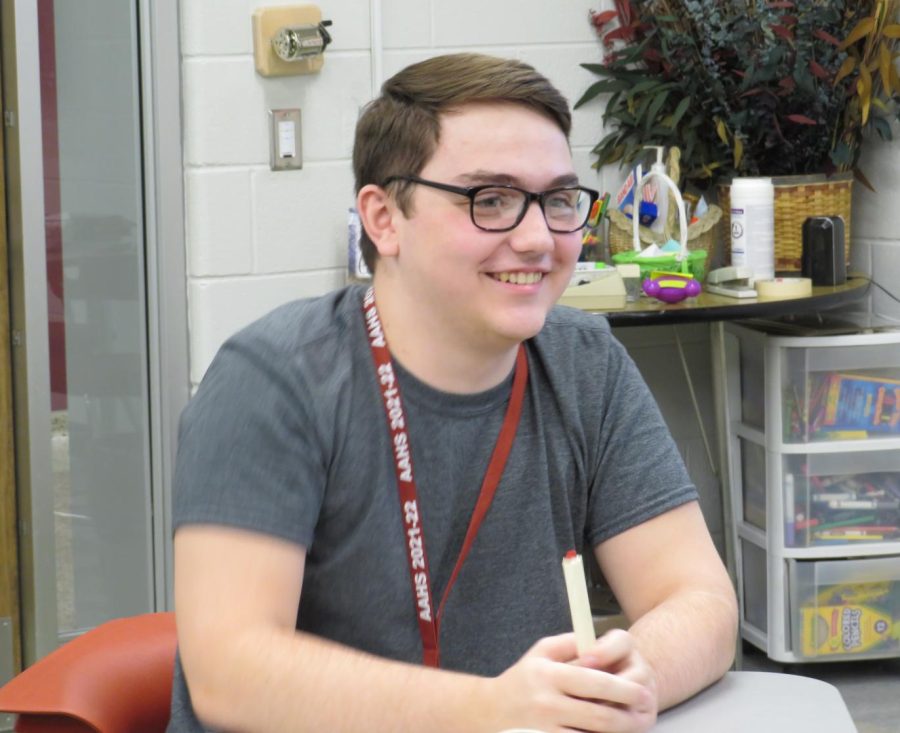
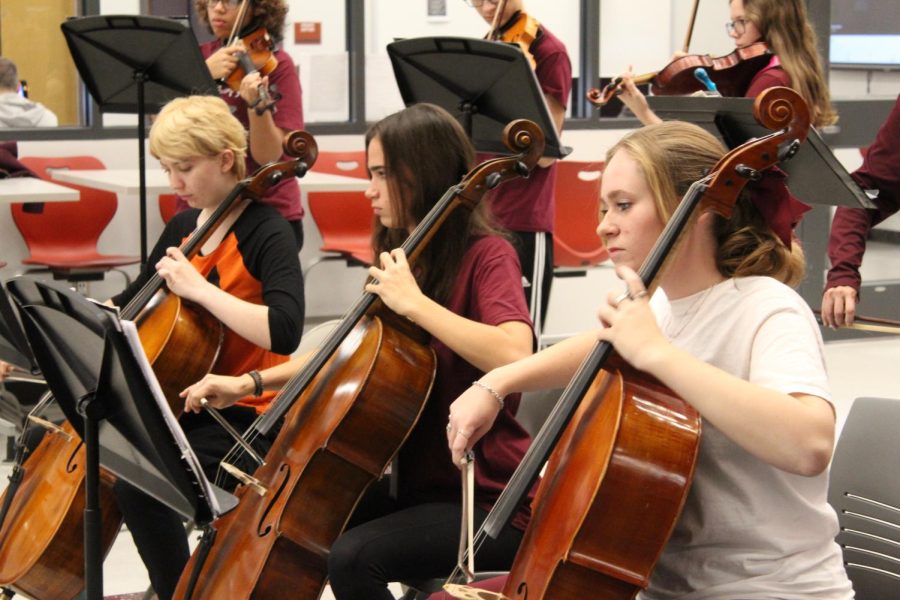



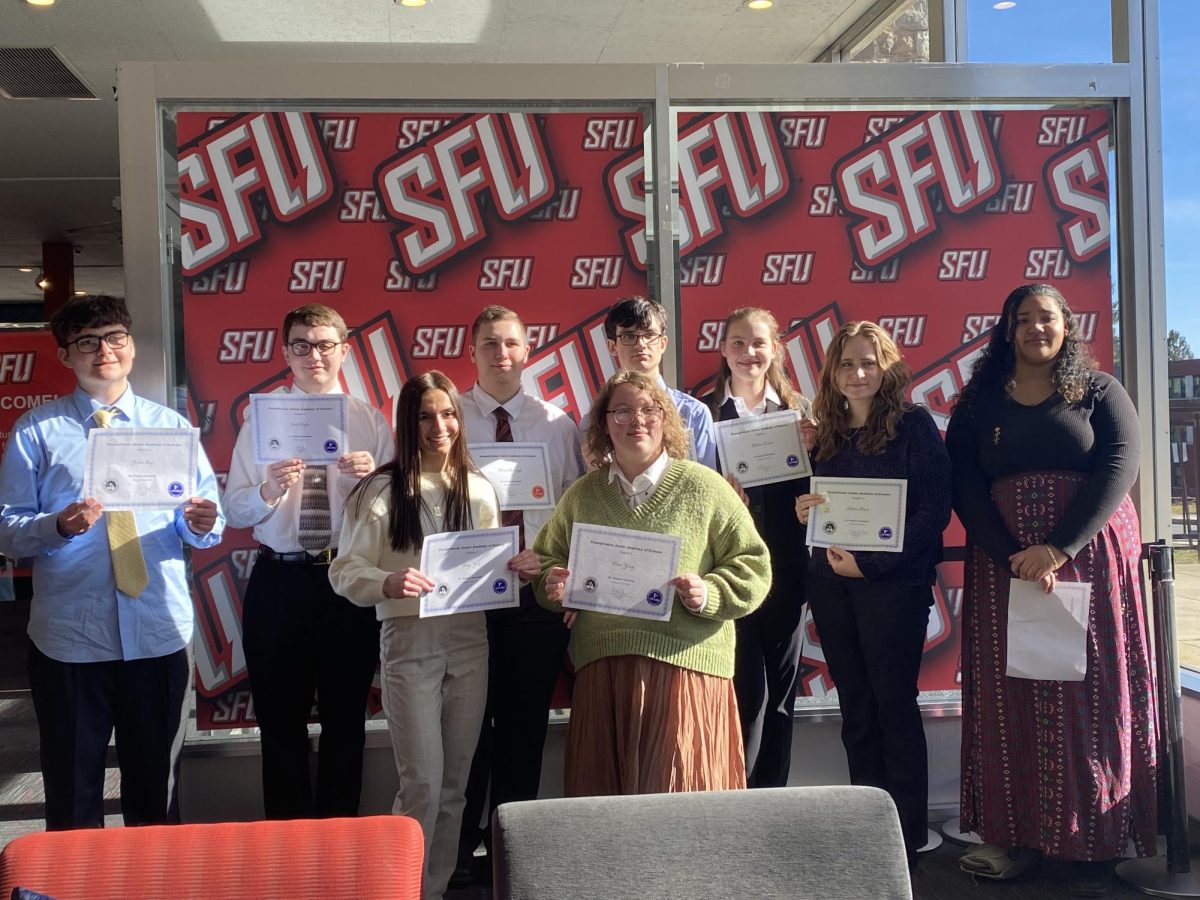
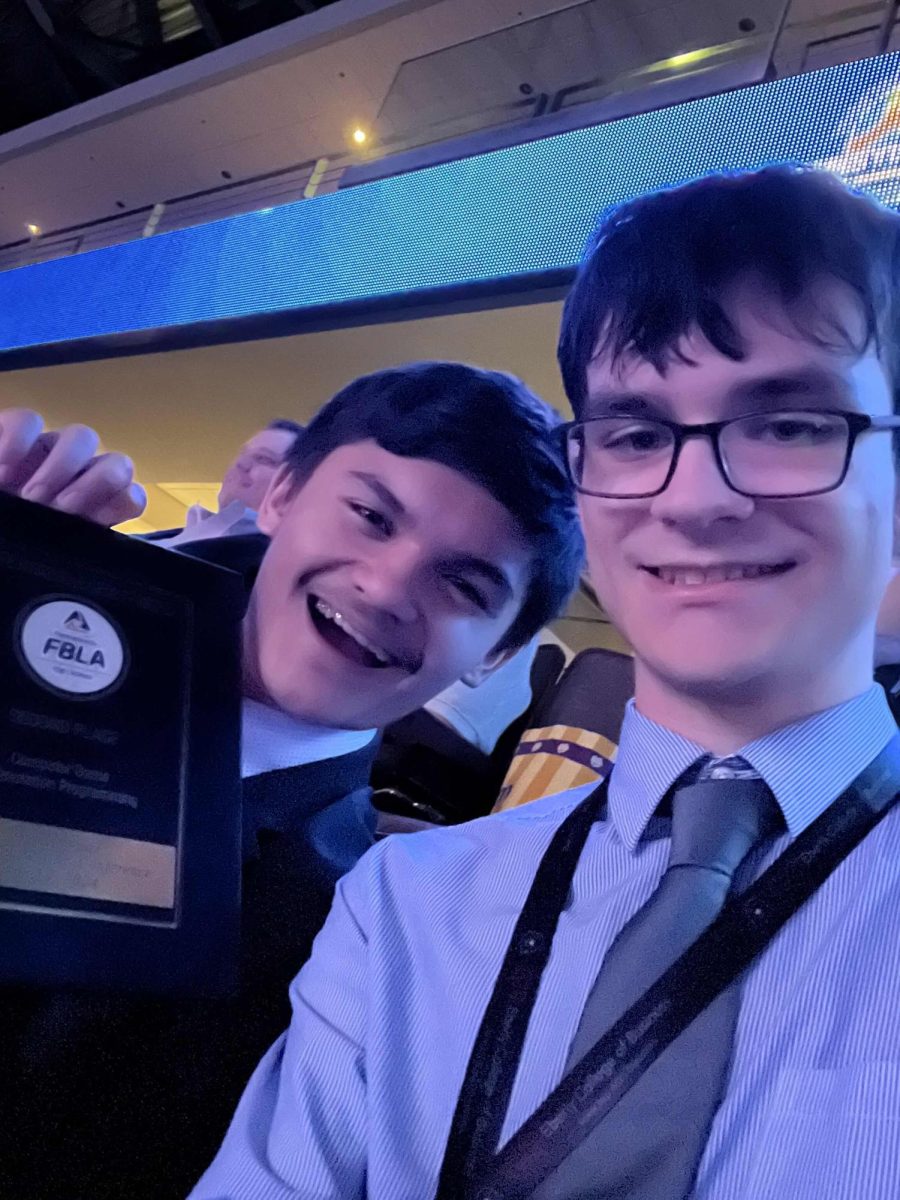
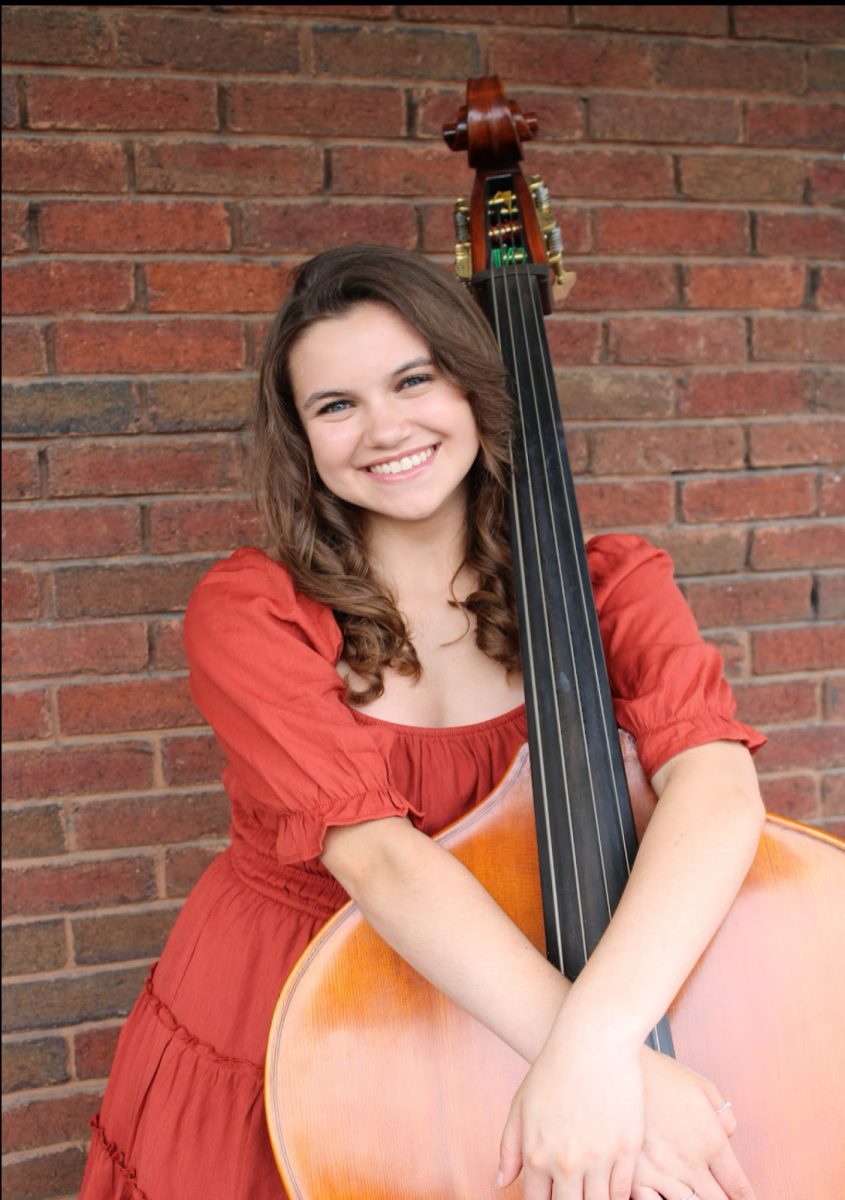
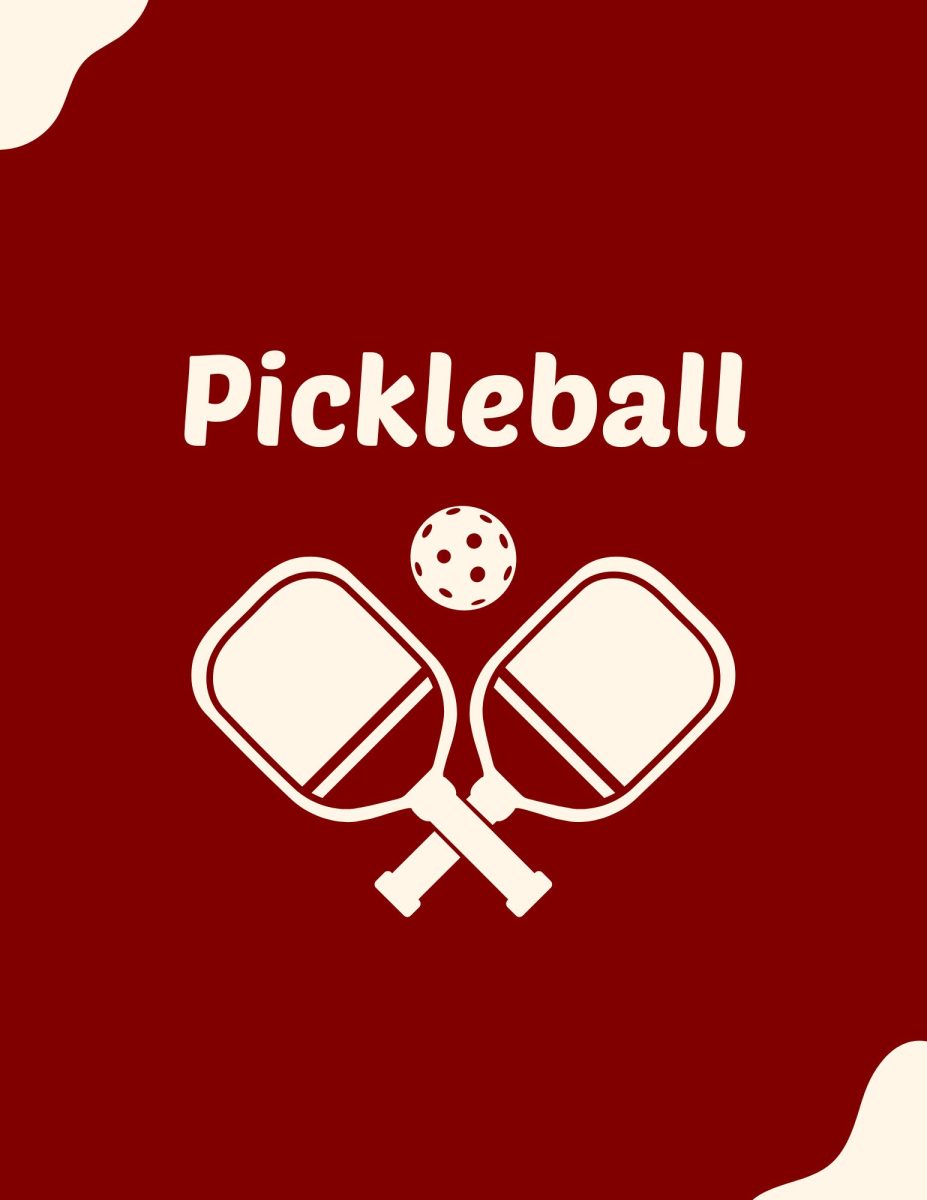
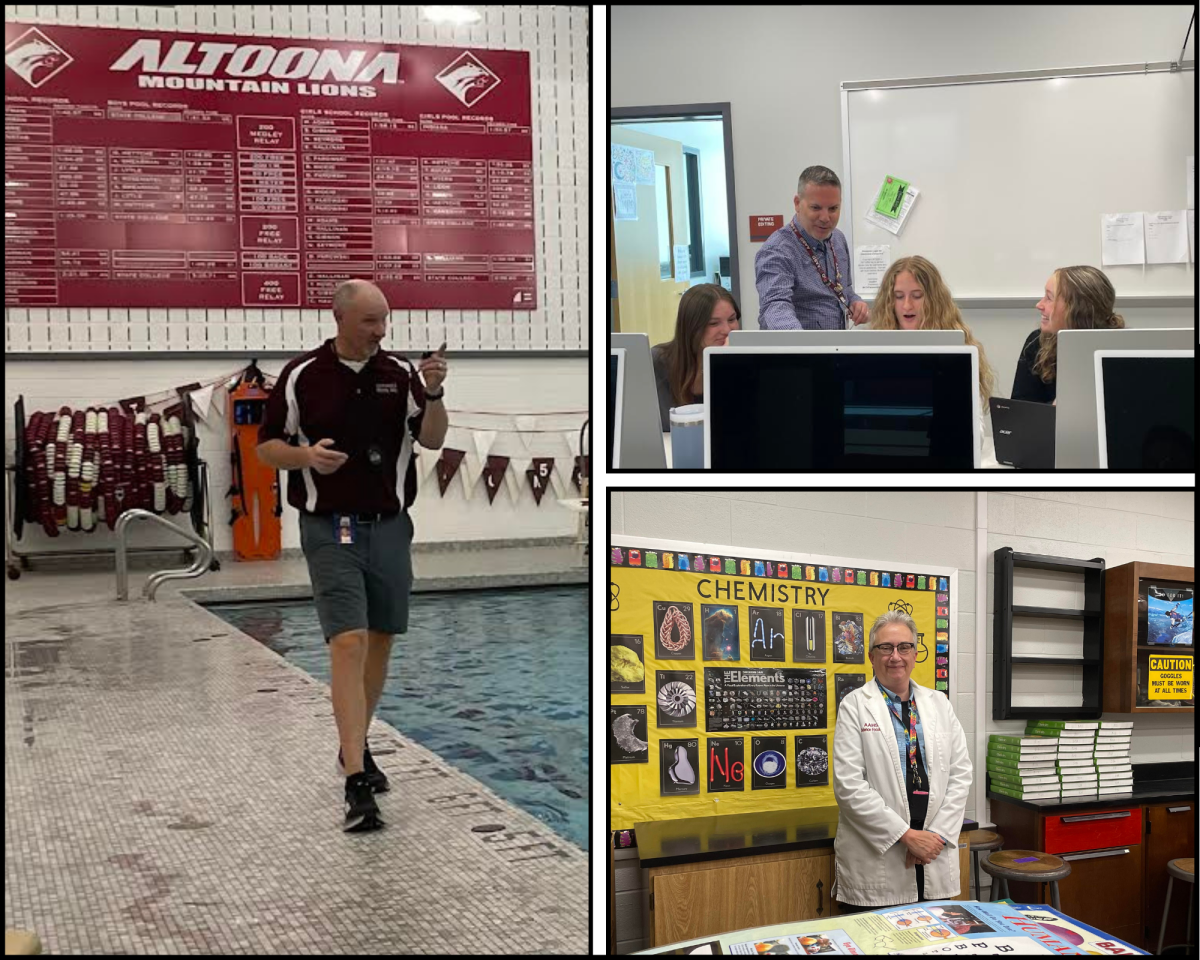
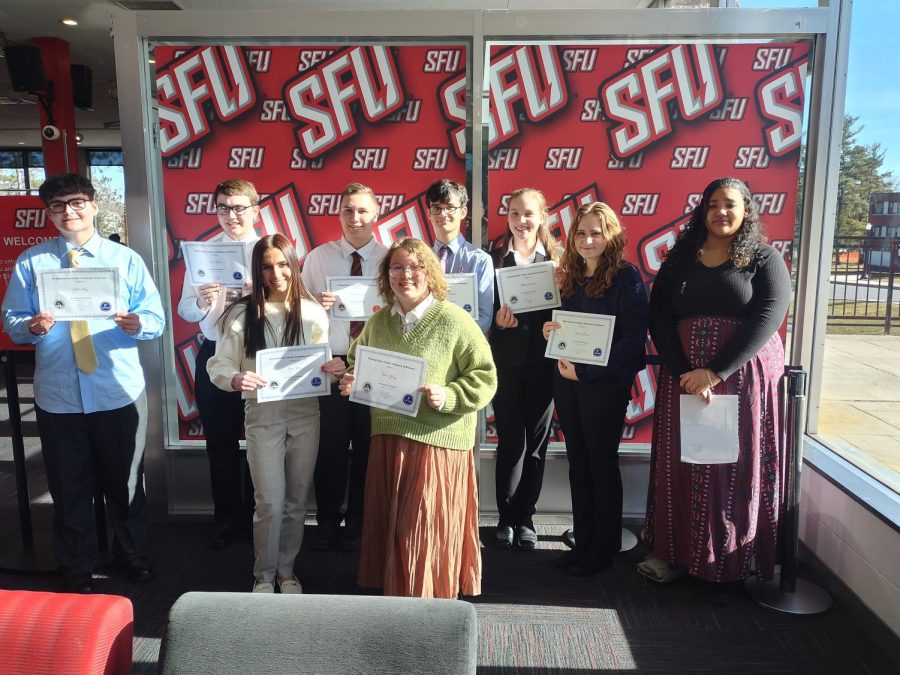
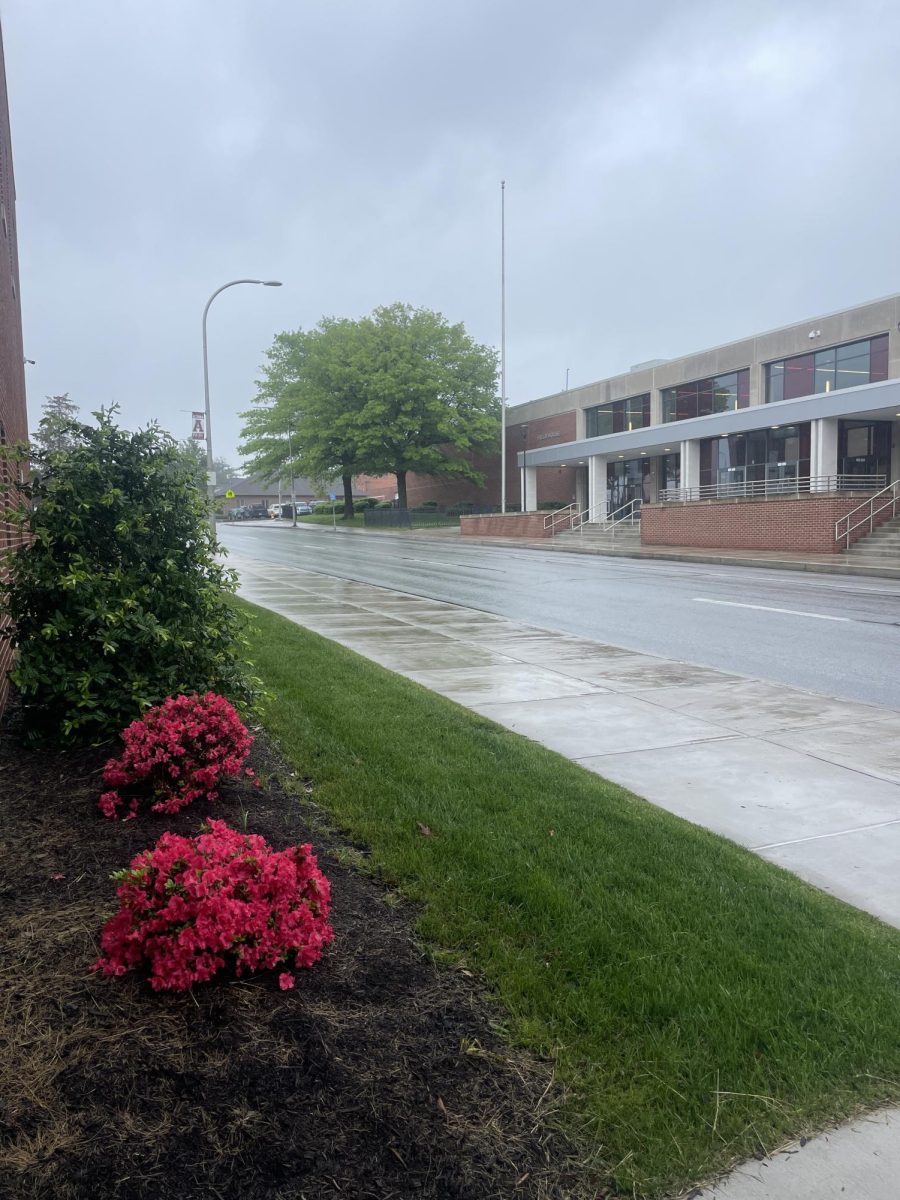

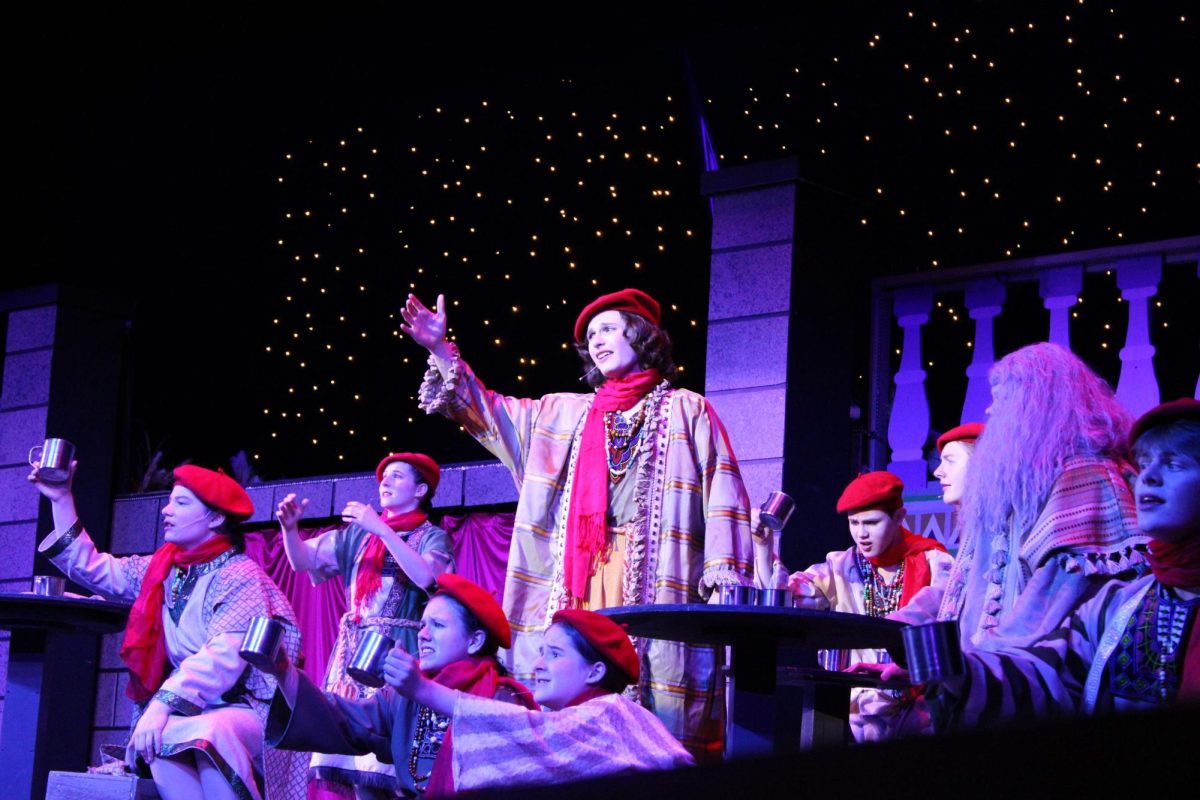

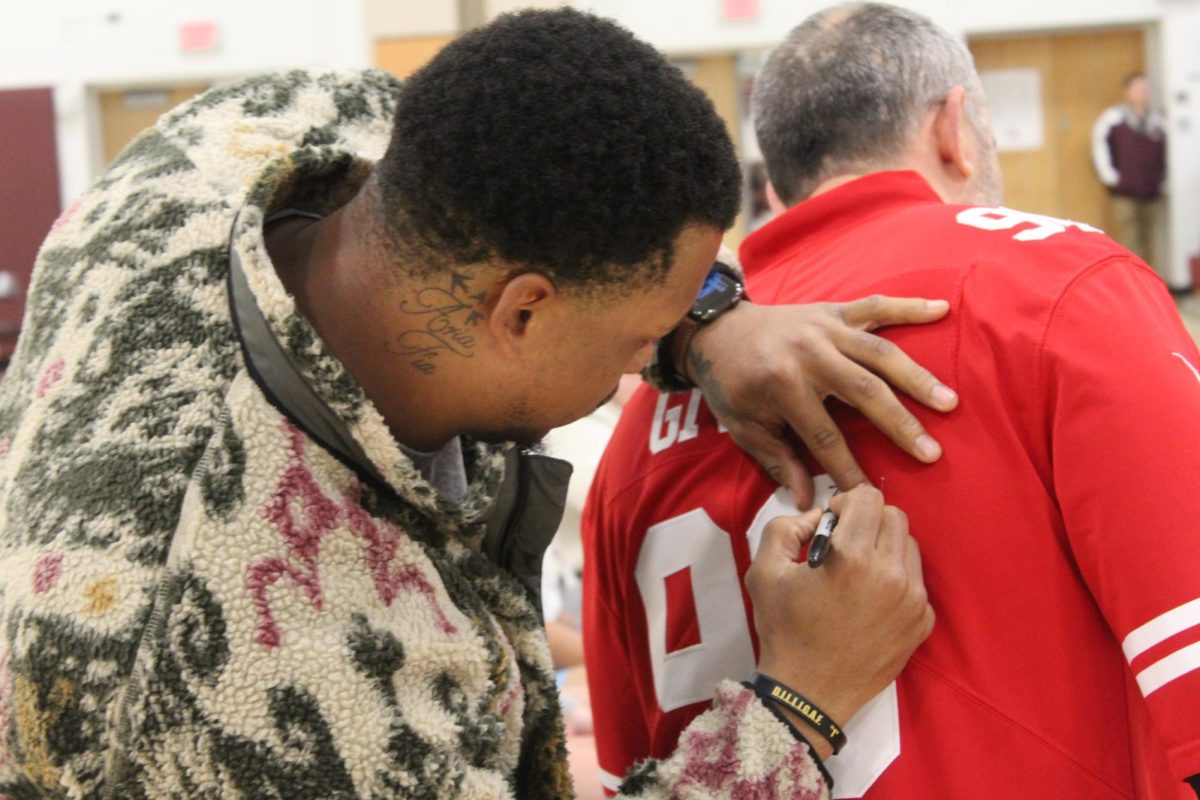
![Chemistry Champion. Chemistry teacher Christine Falger was designated a comic book superhero during the 2023-2024 school year. She poses with her seventh period honors chemistry class, accepting the award. This is a result of the Climate and Culture squads work around the school, which focuses on building teacher morale. [Being part of a squad] is a big time commitment. We as a squad are required to give one hour of time a month, I am probably anywhere from eight to 12 hours a month, Krug said. [But the squads work] can make the high school a better place. I am really lucky to work with a number of teachers who also feel the same way. Even if we are doing more than some squads at the high school, we still feel like what were doing is really important. (Courtesy of James Krug)](https://aahsmountainecho.com/wp-content/uploads/2024/04/Chrissy-Falger-Comic-Book-Superhero-Honors-Chemistry-1-e1712174011111-1200x738.jpg)
